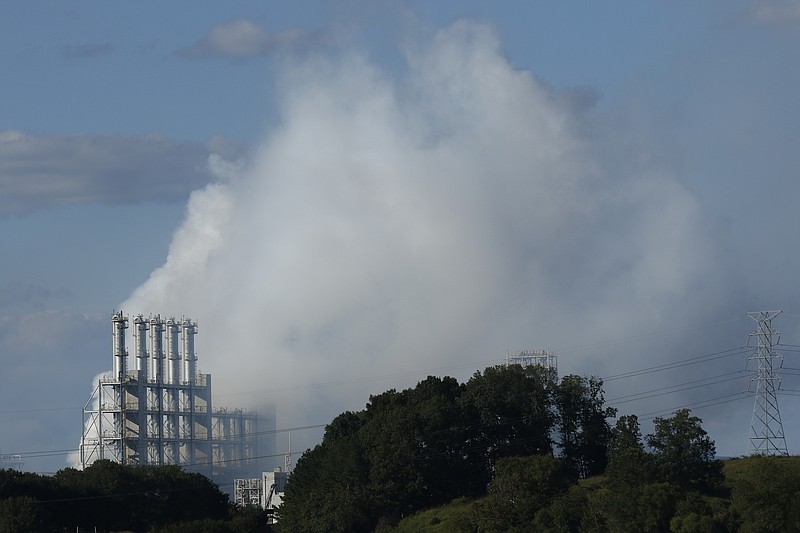It's been a while since we got any "good news" environmental stories.
Last week, thanks to the courts, we saw four reasons for celebration.
Since taking office 19 months ago today, President Donald Trump has made eliminating federal regulations - especially environmental ones - a priority. His administration has particularly targeted rules it thinks are burdensome to the fossil fuel industry, including major Obama-era policies designed to fight climate change.
To date, The New York Times writes, the Trump administration has sought to reverse more than 70 environmental rules.
The Environmental Protection Agency has pushed more than a third of policy reversals, and that's not likely to change under EPA's new acting chief, Andrew Wheeler, a former coal lobbyist.
But environmental advocates and our nation's courts are not just rolling over.
Just last week federal courts threw out three Trump administration delays of Obama-era rules, and a federal judge in Montana ordered the Trump administration to follow the law and conduct a full review of the potential environmental impact of the proposed Keystone XL oil pipeline.
Here's how four recent court cases - all brought by citizens and environmental groups - became victories.
Keystone XL Pipeline delay
For more than a decade, environmentalists, tribal groups and ranchers have fought the $8 billion, 1,180-mile pipeline that will carry heavy crude to Steele City, Nebraska, from Canada's oilsands in Alberta.
Former President Barack Obama nixed the pipeline in 2015 based on environmental concerns relating to emissions that cause climate change, and residents in the pipeline area fear for their water supplies and wildlife.
Those concerns will now be reviewed in a full environmental impact statement.
Clean air victory
On Friday, the Court of Appeals for the District of Columbia Circuit threw out the Trump administration's attempt to delay a chemical plant safety regulation written by the Obama administration.
The rule, issued in 2016 after a devastating Texas fertilizer plant explosion in 2013, would have required chemical manufacturers, refineries, gas processing facilities and other industrial plants that use dangerous chemicals to take steps to prevent the accidental release of those chemicals and to share a safety plan with first responders.
The court said EPA exceeded its authority by issuing a 20-month delay to the rule.
The delay "makes a mockery" of a requirement to set timely compliance deadlines because "it is calculated to enable non-compliance," the court wrote. EPA also failed to explain why such a lengthy delay was needed, the court said, or why the initial compliance deadlines in the rule were no longer appropriate. The law sets a three-month limit on delays for reconsideration and "EPA cannot escape Congress's clear intent to specifically limit the agency's authority," the court said.
Nearly 23 million residents - 7.5 percent of the total U.S. population - live within one mile of a chemical facility, and at least one in every three schoolchildren in the U.S. attends a school within the vulnerability zone of a hazardous chemical facility.
Clean water victory
On Thursday, a federal judge in South Carolina overturned the Trump administration's improper effort to delay of the implementation of the Clean Water Rule - also an Obama-era rule known as the Waters of the United States.
The rule asserts federal power over small waterways like wetlands and streams for the purposes of controlling pollution under the Clean Water Act. It would limit the use of pollutants like chemical fertilizers that could run off into small streams. The rule is aimed mainly at industrial farm operations, such as pig and chicken farms that sometimes severely pollute waterways.
The South Carolina judge ruled EPA had not followed rule-making procedures by failing to give an adequate public notice and comment period as stipulated under the Administrative Procedure Act.
"As administrations change, so do regulatory priorities. But the requirements of the APA remain the same. The court finds that the government failed to comply with these requirements in implementing the Suspension Rule," the court wrote.
Pesticide safety victory
Another federal appeals court the week before ordered the EPA to ban within 60 days the pesticide chlorpyrifos, a widely used product associated with developmental disabilities and other health problems in children. Former EPA administrator Scott Pruitt refused to ban the substance last year. Chlorpyrifos' leading manufacturer is DowDuPont, which has intensely lobbied EPA.
The court's decision is considered a major win for environmentalists and health advocates. The EPA's own research, as recently as 2016, linked chlorpyrifos to developmental and neurological disorders, especially in children and infants.
The court said the Federal Food, Drug and Cosmetic Act, the federal law governing pesticides, requires the EPA to ban the allowance of a pesticide on food if it finds any harm from exposure to it.
The product is used in more than 50 fruit, nut, cereal and vegetable crops including apples, almonds, oranges and broccoli, with more than 640,000 acres treated in California alone in 2016, the most recent year data is available, according to The New York Times.
